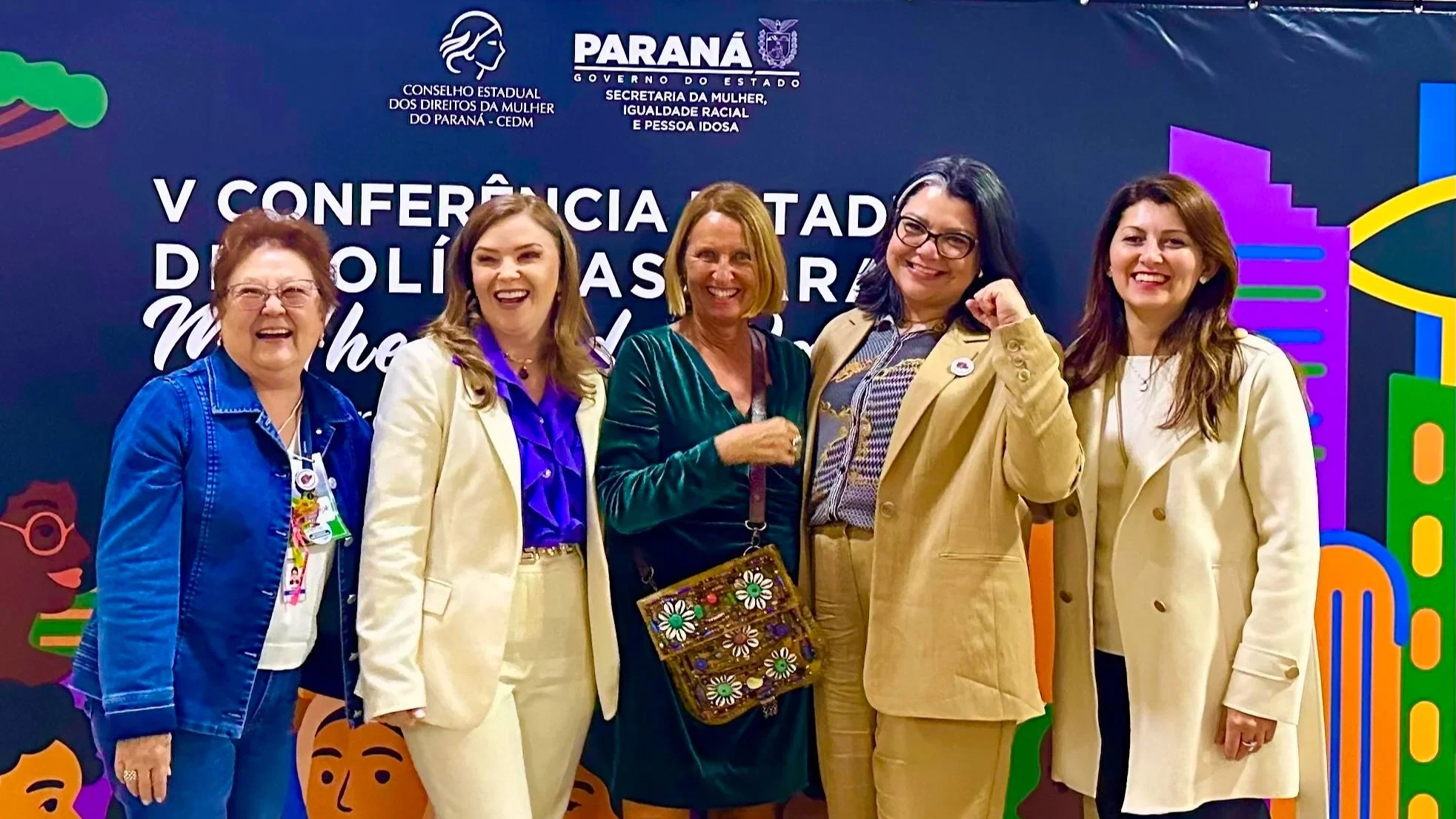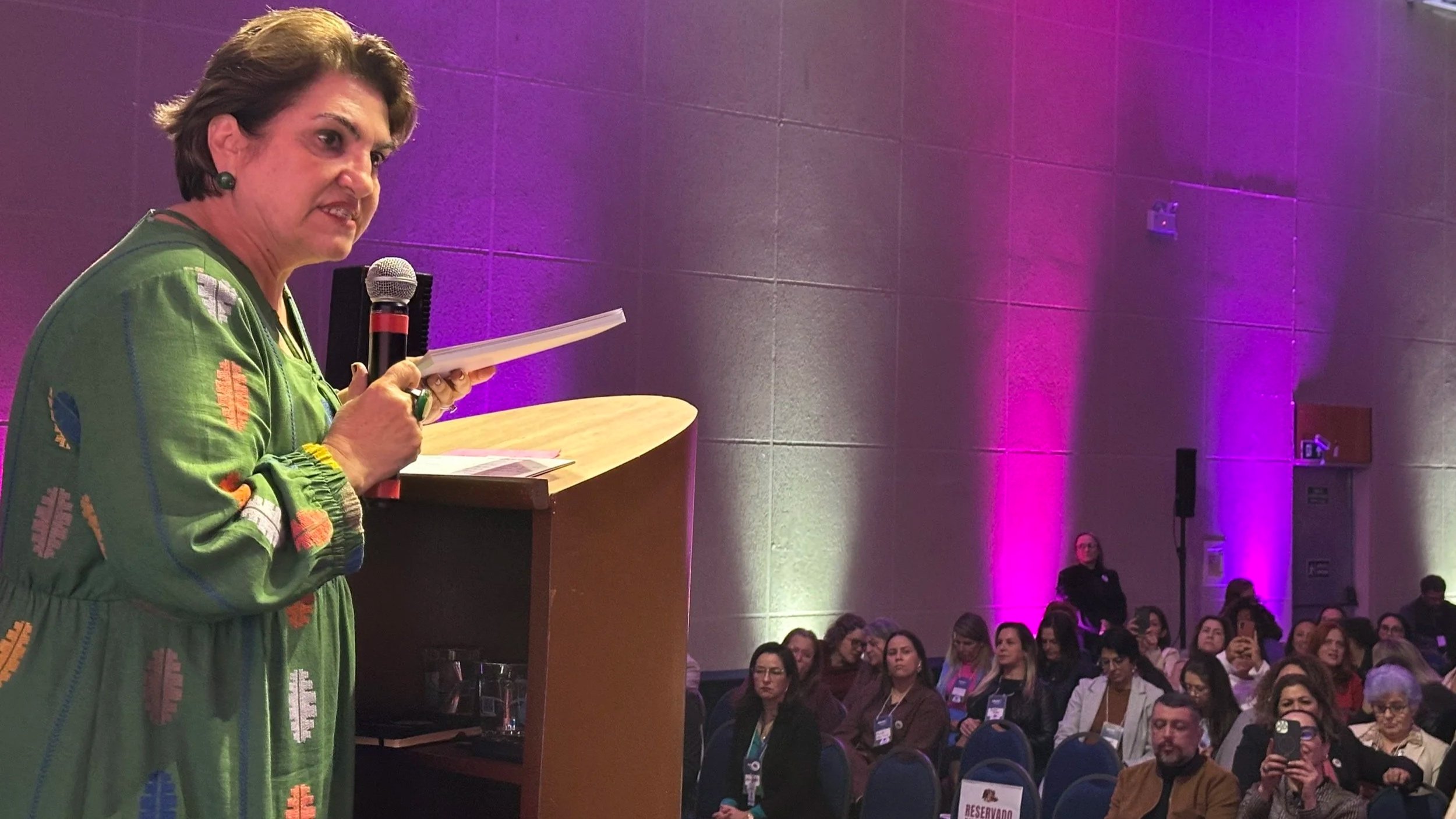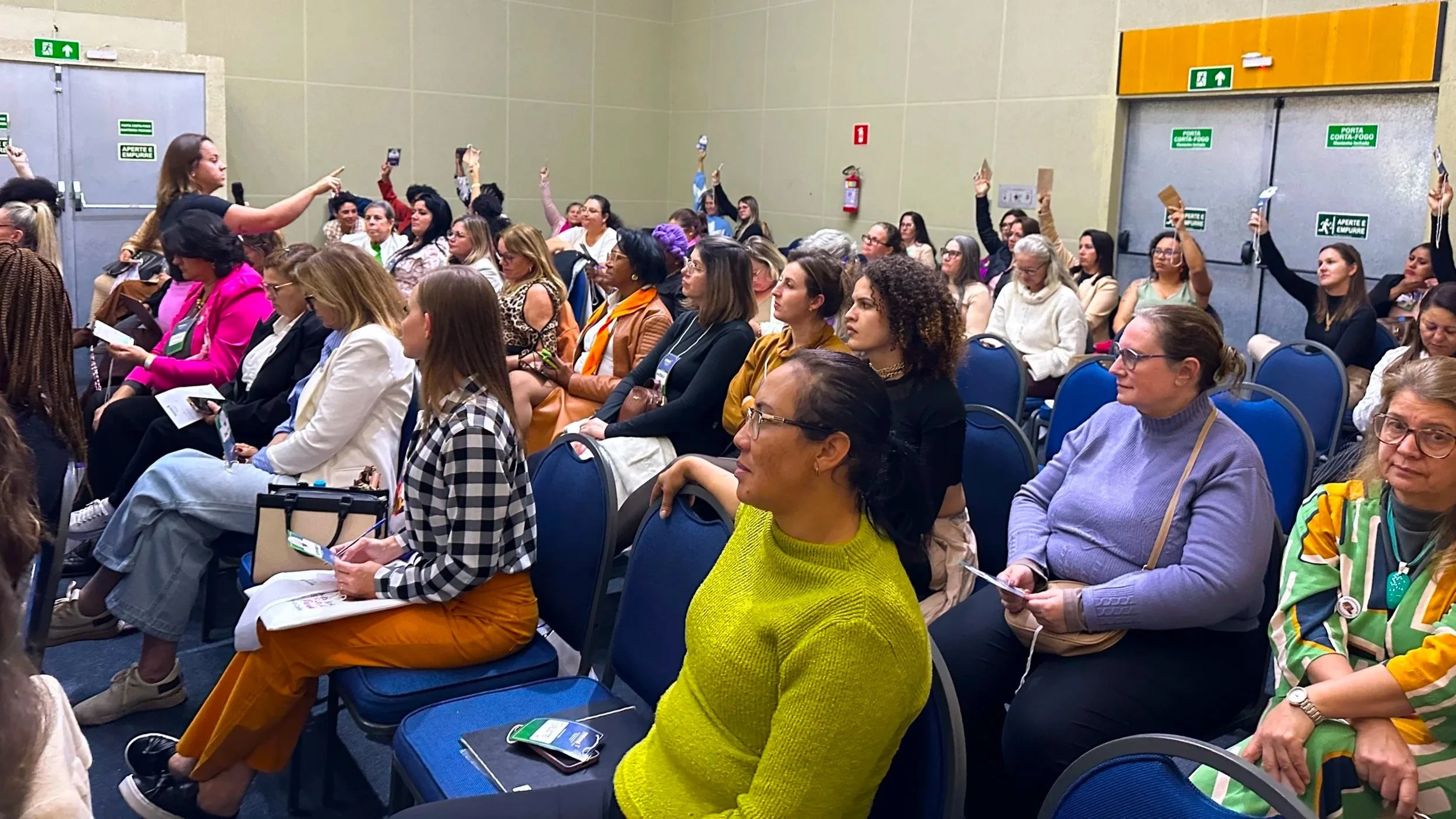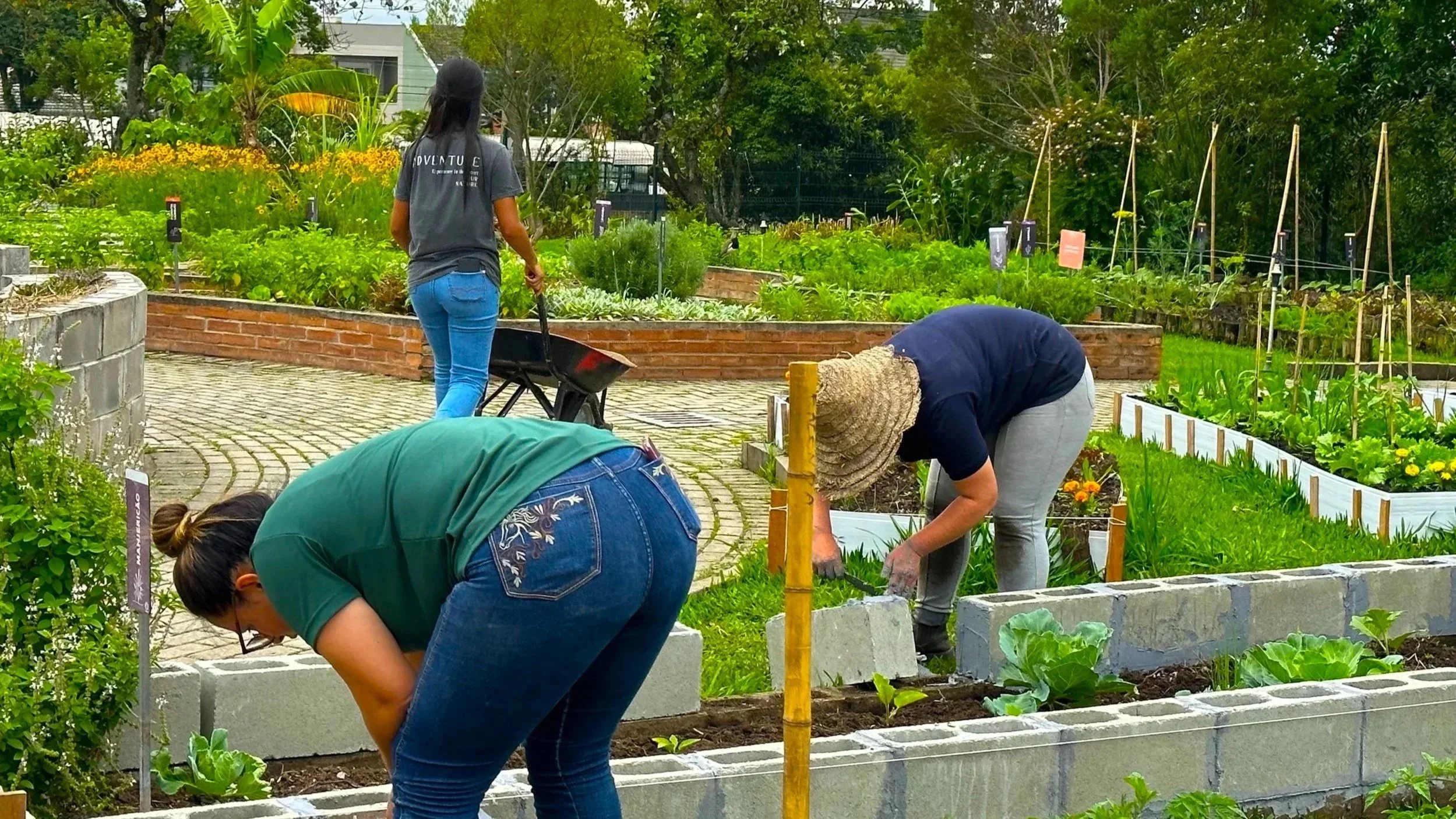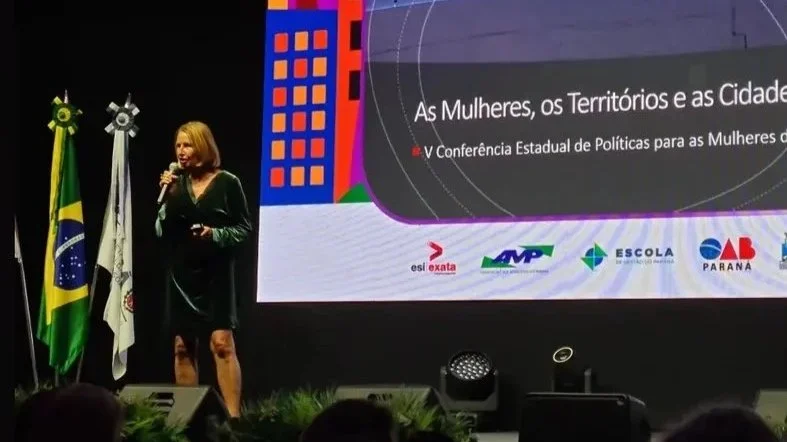Women, Cities and Territories: 5th State Conference on Policies for Women of Paraná
The Secretariat for Women, Racial Equality, and the Elderly believe cities and territories mirror power relations that need to be redefined and redistributed
The 5th National Conference on Policies for Women is a major event organised by the Brazilian federal government in collaboration with civil society. Its mission is to advance public policies that promote gender equality and uphold women's rights. It’s a space for civic engagement, where women from every corner of the country bring their voices, lived experiences, aspirations and demands directly into the heart of public decision-making.
The last National Conference took place in 2016. The 2025 edition arrives in a dramatically different political context—marked by a renewed defence of democracy, a theme at the core of Brazil’s current societal challenges. Within this landscape, women’s protagonism becomes inseparable from a regenerative approach: a conscious and collective effort to heal fractures of the past while cultivating more just and life-affirming futures.
Our diversity is our strength
Minister of Women Márcia Lopes opening the Paraná State Conference on Policies for Women
Threads of Collective Participation
The 5th National Conference on Policies for Women unfolds as a layered and dynamic process. It begins at the municipal level, where women gather to voice concerns and identify potentials grounded in the uniqueness of their communities. These local contributions then ascend to the state level, where they are debated, refined, validated and voted upon. Ultimately, they become part of the national agenda—each proposal a vital thread in a larger tapestry that reflects the needs, hopes, and visions of more than half of Brazil’s population.
The 5th State Conference on Policies for Women of Paraná followed this pattern, marking the culmination of an extensive participatory journey involving 225 municipal, intermunicipal, and independent conferences, engaging thousands of women across geographies, cultures and socioeconomic realities. With 399 municipalities and nearly six million women, Paraná embodies Brazil’s vast and plural reality. Yet, amid this plurality, the process was united by a unifying purpose: to build a world free of stereotypes – one in which women and girls lead the redistribution of power and actively correct the historical exclusion of women’s perspectives from public policy, urban development and territorial planning.
This vision was not merely about representation but about transformation. It positioned women as regenerative protagonists –capable of revitalizing broken systems, restoring care and trust, and reshaping power, gender and racial structures from the ground up.
Women’s regenerative protagonism at the heart of discussions in Paraná
It was ultimately about shifting ways of seeing and ways of asking questions.
A Regenerative Lens: Why It Matters in 2015
In Brazil’s current historical moment, a regenerative approach to public policy is not just relevant—it is urgent. This perspective moves beyond repairing harm caused by systemic inequality; it seeks to restore balance, embrace the potential within diversity, and heal historical and environmental injustice rooted in colonial legacies.
Regeneration begins with the self—recognising that caring for physical, emotional, and mental well-being is a foundational act of leadership. It then radiates outward into the spaces women sustain: families, communities, and natural environments. Women have long been stewards of life, turning neglected spaces into places of safety, nourishment, and belonging. Regenerative leadership brings this often-invisible labour into the light—making it visible, valued and collectively supported.
Building on this foundation, regenerative protagonism does not depend on formal titles or large investments. It starts with intentional actions that reject outdated maps and chart new territories.. At the Conference, women were called to imagine futures rooted in the potential of their places.. Central to this vision was a guiding question: What would a world shaped by women look like? The event’s six interconnected policy axes sought to transform these answers into actionable public policy.
Delegates examining women’s policies as they stand today and to envision what they could become.
Over 1200 women for the coastal towns to the agricultural heartland gathered in Foz do Iguaçú for informed debates and deliberations
Key Policy Axes: What Was Discussed?
1. Democracy, Participation, and Women’s Political Leadership
Brazil currently ranks 133rd globally in terms of gender parity in parliament, with only 17.7% of seats in the Chamber of Deputies and 19.8% in the Senate held by women—figures well below the Latin American average (UN Women, 2025). At the state level, Paraná has reached a historic milestone with 10 women elected to its Legislative Assembly for the 2023–2026 term. Yet, they still comprise only 18.5% of the 54 seats—underscoring a persistent gender imbalance.
This axis focused on pathways to shift this reality. Discussions centred on capacity development and strengthening existing legislation against political violence targeting women and designing new policies to promote fairer representation, especially for Black women and other historically marginalised groups. Delegates emphasized that political participation must go beyond numbers—it must dismantle the power dynamics that continue to sideline women from decision-making spaces.
2. Work, Wage Equity, and Economic Autonomy.
Despite important advances, significant gender and racial disparities persist in Brazil’s labour market. On average, Brazilian women earn 21% less than men, with even wider gaps for Black women. In top executive positions, women make 26.8% less than their male counterparts (Forbes, 2025). Informality also disproportionately affects women—over 8 million are employed in the informal economy, often without social protections.
In Paraná, income inequality mirrors the national trend. In the fourth quarter of 2024, the average real income for women was R$ 3,141, compared to R$ 3,683 for men—a difference of R$ 542, or approximately 14.7% (IPARDES, 2025).
This axis advocated for the elimination of gender and racial wage inequalities, the recognition of informal and domestic work, and the creation of policies that strengthen women's economic autonomy. Redistributing wealth as an act of social justice is not just a corrective measure—it is a foundational step toward true economic emancipation of women.
3. Violence-Free Territories and Strengthening Protection Networks
Brazil is among the countries with the highest femicide rates. In 2023, a woman was killed every six hours—most often in her own home, by a current or former partner. While legislation addressing gender-based violence has advanced in recent years, the support networks intended to protect women remain weak, fragmented, and inadequate. In Paraná, the state registered 109 cases of femicide in 2024—a 34.6% increase from 81 cases in 2023 (Paraná State Department of Public Security – SESP/PR). This sharp rise underscores the urgent need for coordinated action and investment in protective infrastructure.
Participants emphasized the importance of expanding both the number and territorial reach of women’s shelters, specialized police stations, and support centres. Equally critical is the provision of humanized, intersectoral services that prevent re-victimization and offer comprehensive care. The training of public officials with a strong gender and racial equity lens—particularly in rural areas and urban peripheries—was identified as a key priority.
Proposals under this axis focused on building robust, integrated protection networks and reaffirming that women's safety must be treated as a non-negotiable public policy priority. As delegates powerfully stated: where there is fear, there is no freedom.
Paraná’s diverse biomes provide a rich foundation for sustainable farming, water security and territorial justice
4. Right to Territory and Sustainability
Women must be at the forefront of shaping just and ecological transitions. With COP30 set to take place in Belém do Pará, Brazil, this axis brought forward gender-responsive proposals for climate justice, recognising that environmental sustainability and gender equity are inseparable.
Paraná, with its rich diversity of biomes and populations, holds significant potential to lead transformative initiatives that integrate sustainable agriculture, water security, environmental protection, and territorial justice—all with women at the center. In urban areas, the emphasis was on fostering an urbanism of proximity that ensures clean air, quality of life, access to urban gardens, and safety in public spaces.
Key lines of work included access to land through agrarian reform and legal regularization, the right to dignified urban housing, equal representation in environmental councils, and targeted support for green, women-led entrepreneurship. A central question guided the discussions: what investments are needed to ensure women’s active participation in territorial management and the ecological transition?
5. Non-Sexist Education and Culture for Equality
In Brazil, gender stereotypes continue to deeply influence everyday life in schools and cultural spaces, limiting girls’ dreams, career choices, and self-esteem. The lack of representation of women, Black people, and Indigenous peoples in official narratives perpetuates historical inequalities and structural silencing.
Recognising schools and cultural institutions as spaces of emancipation is essential to fostering an education that does not simply reproduce these inequalities, but actively questions and transforms them. In Paraná, discussions emphasized that deconstructing toxic masculinities is a crucial step toward enabling men to see themselves as vulnerable and capable of building empathetic, respectful, and non-violent relationships. Teaching boys to become men without relying on oppression or domination is a key part of dismantling patriarchal culture. This axis called for schools and cultural spaces to become true sites of liberation—where entrenched historical narratives are challenged and new, inclusive imaginaries can take root and flourish.
6. Integral Health and Wellbeing for Women
Women make up the majority of Brazil’s population and are the primary users and caregivers within the public health system (SUS). Yet many, especially those in rural or marginalized urban areas, face significant barriers to accessing care.
In Paraná, participants of the conference discussed the need to strengthening the SUS with a gender perspective is essential to ensure universal access to preventive exams, humanized childbirth, contraceptive methods, and mental health services. Tailored programmes are needed to address the diverse needs of different groups of women, respecting their unique life contexts.
This axis called for intersectional health policies that consider race, class, geography, and age, ensuring the right to health for girls, young women, adults, and elderly women—including women with disabilities, lesbians, and trans women—in both urban and rural contexts.
With 399 municipalities and nearly six million women, Paraná reflects Brazil’s vast and plural reality. Despite such diversity, participants were united by a single purpose: to craft and approve transformative women’s policies for current and future generations
Key Results: Transformative Proposals at State and Federal Level
Over 1,000 women from more than 200 cities in Paraná took part in the three-day event, representing civil society and public institutions. From over 300 initial proposals, the process refined priorities to 44 at the state level and 32 at the federal level preserving bold, intersectional ideas at the edges of the narrative to ensure innovation was not lost to compromise.
Federal Proposals:
Extended maternity and paternity leave, with job security,
A national cultural policy with a gender perspective,
Support for humanized childbirth in SUS, led by pregnant women,
Gender parity in legislative bodies and political party leadership,
Inclusive BPC benefits where mothers are sole income providers.
State-Level Priorities (Paraná):
Incentives and quotas for companies promoting women in leadership,
A psychosocial protocol for police to assist women survivors of violence,
Climate justice funding for women-led projects.
Cross-Cutting Proposals:
Ineligibility for public office of men convicted of violence against women,
Expansion of mental health services for survivors,
Gender and diversity education in school curricula,
Strengthening urban agriculture and solidarity economies led by women.
Paraná’s women are transforming representation into systemic change and building a future grounded in the uniqueness of their territories
Conclusion: Building a Regenerative Future from the Ground Up
The regenerative protagonism guiding the women of Paraná marks a historic shift – one where women not only claim their rightful place in public decision-making but also take responsibility for infusing life, vitality, and resilience into every choice affecting their communities, cities, and territories. This is regeneration in action, shaping the tone, methods, and commitments of the upcoming National Conference.
The 5th National Conference on Policies for Women is already a catalyst for systemic transformation. Its blueprint bridges historic gaps in women’s participation and representation, with delegates from Paraná and across Brazil elected under clear criteria that reserve at least 50% of seats for Black women among both public officials and civil society representatives. The process also ensures the inclusion of historically marginalised groups – including young, elderly, disabled, lesbian, bisexual, transgender, transvestite, Indigenous, and rural women—and provides caregiving support in line with the Child and Adolescent Statute, enabling mothers to fully participate.
Together, these measures lay the foundation for a future where representation is a structural reality, not just an aspiration. When women have a stronger voice in shaping society, the outcome is a more human-centered, emotionally rich, balanced, ecologically connected, safer, and more beautiful world—one that thrives on its distinctiveness and is grounded in the values of togetherness and care,
What are women’s unique contributions to the redesign of our human presence on the planet?
The future needs to enter us well before it happens.

